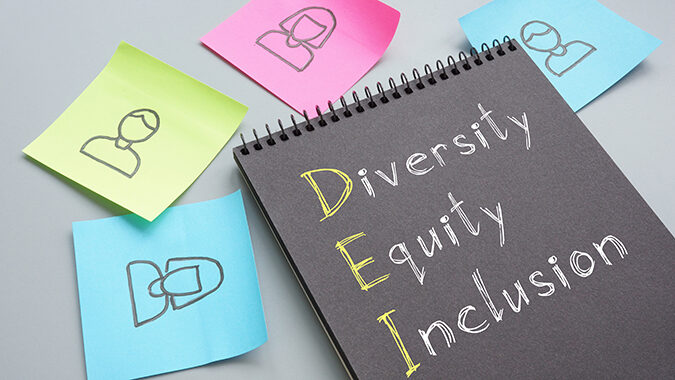The SHRM Research Institute and Boston College recently released preliminary findings from new research that show nearly two-thirds of organizations (65%) say diversity, equity and inclusion (DE&I) is important, yet 63% have allocated little to no resources to DE&I.
The full report will be released in the coming months, but preliminary findings were revealed at the SHRM Inclusion 2022 conference in San Diego last week.
The study, funded by the Center for Social Innovation at the Boston College School of Social Work, the Society for Human Resource Management (SHRM) and WorkRise — a research-to-action network on jobs, workers and mobility hosted by the Urban Institute — provided a snapshot of the state of workplace equity in the United States.
"In today's evolving world of work, fair policies and practices together with strong and deliberate DE&I strategies are integral to breaking the barriers of bias and inequity that can be present in the workplace," said SHRM Chief Knowledge Officer Alex Alonso, SHRM-SCP.
"We must continue to address the root causes of bias, whether it be gender, age, racial, sexual orientation or disability, while building greater equity to lead workplaces into a better tomorrow," Alonso said.
The SHRM Research Institute and Boston College found that 20% of HR professionals say their organization's overall policies and practices are not at all fair or are only somewhat fair. What's more, between 25% and 28% of organizations say their employees have experienced certain types of bias within the past two years:
-
- About 27% of organizations' employees have experienced racial bias within the past two years.
- A quarter of organizations (25%) say their employees have experienced bias against older workers within the past two years.
- It was also found that over a quarter of U.S. organizations (28%) say their employees have experienced gender bias within the past two years.
The National Study of Workplace Equity, which surveyed 1,062 U.S. organizations between Aug. 19 to Aug. 31, 2022, focused on identifying the root causes of inequality in the workplace by investigating how inequities can be embedded within employment systems.
The study assessed the equity of 10 different employment systems: job structures, recruitment and hiring, compensation and benefits, orientation and onboarding, supervision and mentoring, training and career development, performance assessment and feedback, employee resources and supports, promotions, and separations. The researchers developed an index to determine which systems were more equitable and which were less equitable at the time of the study.
The employment systems with the highest mean equity scores were recruitment and hiring; compensation and benefits; and orientation and onboarding. The systems with the lowest mean equity scores were employee resources and support; job structures; and supervision and mentoring.
The study also identified seven pathways that employers might pursue to strengthen equity in each of the employment systems. These pathways include policies, practices, planning and evaluation; roles and accountabilities, culture, climate and communication.
The results reveal that across employment systems, roles and accountabilities are a pathway where equity could be stronger. The results suggest that organizations are not consistently holding leaders accountable for equity in different employment systems.
According to survey respondents, the share of organizations with limited or no accountability from leaders on ensuring equity varies considerably across employment systems. Here is a detailed breakdown of the results:
- Job structures — 62%
- Employee resources and support — 57%
- Training and career development —55%
- Supervision and mentoring — 51%
- Promotions — 49%
- Recruitment and hiring — 43%
- Separations — 40%
- Performance assessment and feedback — 39%
- Orientation and onboarding — 39%
- Compensation and benefits — 37%




